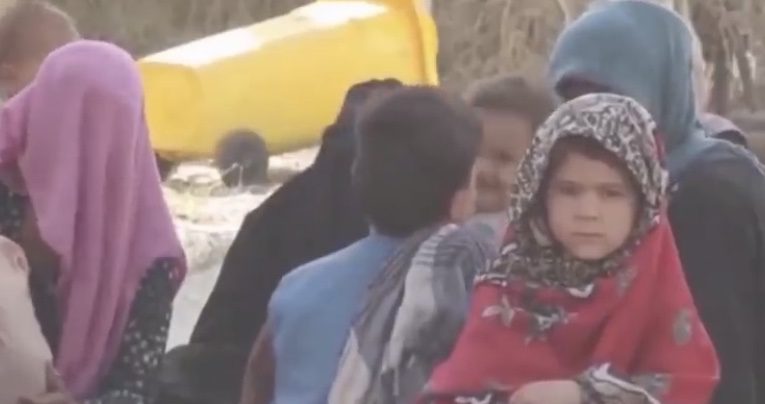Taliban blitz continues in Afghanistan: Eyes on Mazar-e-Sharif
Noriko Watanabe and Lee Jay Walker
Modern Tokyo Times

The Taliban is taking vast swathes of Afghanistan with little resistance in many areas. Thus the armed forces of Afghanistan in many regions have merely ghosted away. It remains to be seen if the move is tactical because the emphasis is on protecting Kabul. Or, if like many media outlets are signaling, the armed forces deem the situation untenable – at the moment – because the momentum is with the Taliban.
In many conflicts, the situation can dramatically change on the ground concerning countless factors. Sometimes it is the military balance and power dynamics that have shifted dramatically. Other times, international meddling or internal mistakes concerning corruption, cronyism, and lack of military preparation.
Likewise, the power dynamics can be based on retrenchment to specific areas – or overrun areas are retaken. Therefore, the chaotic situation in Afghanistan can change in countless ways – irrespective of retrenchment by government forces, the collapse of the government of Afghanistan, ethnic alliances, outside actors, and so on.
Hence, the battle for Mazar-e-Sharif (Mazar-i-Sharif) will be an indicator during the current Taliban onslaught about internal and external factors. The Northern Alliance (United Islamic Front of the Salvation of Afghanistan) fought defensively against the Taliban in the middle of the 1990s until America entered the fray and utilized this alliance.
The Northern Alliance consisted of Shia Hazara, Sunni Tajiks, Sunni Uzbeks, Sunni Turkmens, Sunni Pashtun (Eastern Shura), and Shia Tajik and Hazara under Harakat-e Islami. These combined groups – for example, Junbish-i Mili were a fusion of mainly Uzbeks and Turkmens under General Rashid Dostum. Therefore, various groups within the Northern Alliance emerged in an anti-Taliban alliance.
Hence, the situation around Mazar-e-Sharif is significant historically. Yet, the one negative for the returning Dostum and Atta Mohammed Noor is the rapid demise of the armed forces of Afghanistan. Therefore, time to form a counter-strategy isn’t being given to the Uzbek and Tajik commanders who recently met President Ashraf Ghani in Mazar-e-Sharif.
The Independent reports, “The fall of Mazar-i-Sharif, which had been one of the fortresses of the Northern Alliance in the long years of the civil war, and is a traditional financial centre, would mean near-total loss of government control over the north and west of the country.”
In the past, the nations of India, the Russian Federation, Tajikistan, Turkmenistan, and Uzbekistan all supported the Northern Alliance to varying degrees. The ethnic component with independent Central Asian nations can’t be ignored. However, the one noticeable shifting sand is the weakness of America geopolitically being replaced by China.
This concerns China having cordial relations with Pakistan. Thus with links between the Taliban and Pakistan being no secret, it is interesting that Pakistan is more open to Beijing now and not Washington. Hence, the external angle of Afghanistan remains. However, America is now a reduced player given the policies of President Joe Biden.
If Mazar-e-Sharif falls to the Taliban – and no movement similar to the Northern Alliance emerges – then an internal and external stamp is occurring in the short term. Part of this might be based on the capitulation of the armed forces of Afghanistan. Hence, little time for a military counter-offensive.
Or, it might be that China and the Russian Federation – and regional Central Asian nations – believe that Pakistan will install certain power leverages over the Taliban. This concerns China’s growing economic and military importance to Pakistan.
Ethiopian forces entered Tigray and it looked like opposition forces inside this land had been crushed by the central government of Ethiopia and Eritrea. However, events suddenly changed because the military forces of Tigray have pushed back against Ethiopia and regional allies. Therefore, events in Afghanistan – just like in Ethiopia – can change dramatically irrespective of a complete defeat, mini-states, or a counter-attack by government and allied forces.
It remains to be seen if Kabul will be strengthened internally by government military forces and recent Western allies who loathe seeing Kabul collapse so rapidly. Hence, the battle for Mazar-e-Sharif is significant in many ways.

PLEASE DONATE TO HELP MODERN TOKYO TIMES
Modern Tokyo News is part of the Modern Tokyo Times group
DONATIONS to SUPPORT MODERN TOKYO TIMES – please pay PayPal and DONATE to sawakoart@gmail.com
http://moderntokyotimes.com Modern Tokyo Times – International News and Japan News
https://www.pinterest.co.uk/moderntokyotimes/ Modern Tokyo Times is now on PINTEREST
http://sawakoart.com – Sawako Utsumi personal website and Modern Tokyo Times artist
https://moderntokyonews.com Modern Tokyo News – Tokyo News and International News
PLEASE JOIN ON TWITTER
https://twitter.com/MTT_News Modern Tokyo Times
PLEASE JOIN ON FACEBOOK